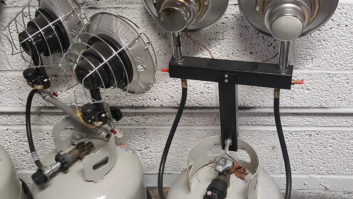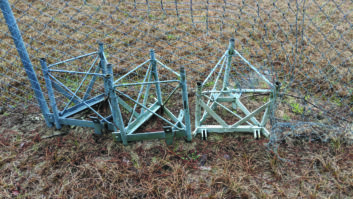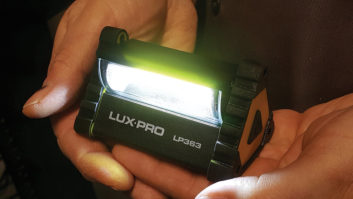Ed Dulaney is the market engineer for Crawford Broadcasting’s Denver cluster. He writes that for several months he’s had some old 2.4 GHz Wireless Access Points (WAPs) lying around in storage. From all outside indications they seemed to be functioning perfectly.
When plugged in, Ed saw the “blinking lights” on the front and was able to log into the Web interfaces with a computer connected to the Ethernet port. However, no matter which way he set up the wireless configuration, he couldn’t see the access points with a WiFi card in his PC. It just seemed that the units weren’t radiating any RF.
Being an industrious sort, Ed decided to see if he could measure the RF output of the units with a “Microwave Leakage Detector.” These are the units sold by almost every department store — RadioShack too — and are used to check a microwave oven for excess radiation.
Since microwave ovens operate at 2.45 GHz, Ed figured that these detectors would be able to pick up the 2.4 GHz signals from his WAPs. Sure enough, when he put one of them next to a working antenna, it read the approximate power density of the access point.
the D-Link wireless access point is radiating 2.40 milliwatts per cubic centimeter, proving that the device is indeed putting out a signal
Ed found that the levels will bounce around wildly, as a wireless access point utilizes spread-spectrum modulation. Readings varied between 0.1 and 3.1 mW on the Microwave Leakage Meter.
He tested the units in storage, and found some that never gave any reading, proving without a doubt that the RF section was toasted!
Sure, you could drag out the spectrum analyzer and check the levels that way. But for $20 at your local department store you can have a portable WAP tester.
This tip is from the Dec. 19, 2007 issue. Radio World’s Workbench by John Bisset is an industry classic, one of radio’s most-admired, and most-copied, columns. Find out why in each issue. Find thousands of helpful tech tips for radio engineers and managers in the Workbench archives at our Web site. E-mail your own tips to [email protected]. Submissions qualify for SBE recertification credit.










